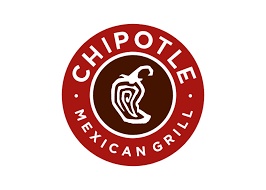Chipotle Q3 2024 $CMG (-0,14%)

Financial performance
Chipotle reported a 13.0% increase in sales to $2.8 billion in the third quarter of 2024, driven by new store openings and a 6.0% increase in comparable restaurant sales. The latter was driven by a 3.3% increase in transactions and a 2.7% increase in average cash receipts.
Balance sheet analysis
As of September 30, 2024, Chipotle's total assets amounted to USD 9.01 billion, compared to USD 8.04 billion at the end of 2023. The increase is mainly due to higher cash and cash equivalents, which increased from USD 560.6 million to USD 698.5 million. Liabilities increased to USD 5.40 billion, with long-term lease liabilities accounting for a significant proportion.
Income statement
For the nine months ended September 30, 2024, Chipotle's net income was USD 1.20 billion, compared to USD 946.7 million in the previous year. The operating margin increased to 16.9% (previously 16.0%), while the restaurant margin decreased slightly to 25.5% (previously 26.3%).
Cash flow analysis
Net cash inflow from operating activities amounted to USD 1.58 billion for the first nine months of the year, compared with USD 1.52 billion in the previous year. The company invested USD 701.5 million, mainly in expansions and investments. Cash outflow from financing activities amounted to USD 734.9 million, due to share buybacks.
Key figures and profitability
Diluted earnings per share (EPS) increased by 21.7 % to USD 0.28. Adjusted diluted EPS rose by 17.4% to USD 0.27. The effective tax rate amounted to 22.9 % and was thus slightly below the previous year's figure of 24.2 %.
Competitive analysis
Chipotle's focus on quality people, products and efficiency, along with the reintroduction of Smoked Brisket, contributed to the strong results. The company plans to increase the number of restaurants in North America to 7,000, indicating a focused expansion strategy.
Forecasts and comments from management
Management emphasized the importance of its five key strategies to ensure current success and long-term growth. The priority remains to offer guests exceptional value and a customizable culinary experience.
Risks and opportunities
- RisksInflation in raw material costs, particularly for avocados and dairy products, could put pressure on margins.
- Opportunities: The success of Chipotlanes and the popularity of smoked brisket offer potential for increased sales and customer loyalty.
Summary and strategic implications
Chipotle's strong financial performance in the third quarter of 2024, characterized by significant sales growth and improved profitability, illustrates the effectiveness of its strategic actions. The company's expansion plans and focus on customer experience through Chipotlanes and menu innovations position the company well for future growth. However, managing raw material cost inflation remains a key challenge. Overall, Chipotle's strategic direction is consistent with its long-term goals of expanding its restaurant footprint and strengthening its brand presence globally.
Positive statements
- Sales growthChipotle reported sales growth of 13.0%, totaling $2.8 billion in the third quarter of 2024, driven primarily by new openings and a 6.0% increase in comparable restaurant sales.
- Increase in net profitNet income increased significantly to USD 1.20 billion for the nine months ended September 30, 2024, compared to USD 946.7 million for the same period in 2023.
- Expansion strategy: The company opened 86 new restaurants, including 73 with Chipotlanes, significantly improving access and convenience for guests.
- Contribution of digital sales: Digital sales accounted for 34.0% of total food and beverage sales, demonstrating strong growth in the digital segment
- Improved operating margin: The operating margin increased to 16.9% compared to 16.0% in the previous year, indicating higher operating efficiency.
Negative statements
- Increased food costs: Food, beverage and packaging costs increased to 30.6% of total sales compared to 29.7% in Q3 2023 due to commodity price inflation.
- Slight decrease in restaurant operating marginOperating margin at restaurant level decreased slightly to 25.5% compared to 26.3%, indicating pressure on profitability at restaurant level.
- Higher non-current liabilitiesTotal liabilities increased to USD 5.40 billion, mainly due to long-term lease liabilities, which could limit future financial flexibility.
- Commodity cost inflation riskThe report highlights ongoing risks from rising commodity costs, particularly for avocados and dairy products, which could continue to put pressure on margins.

